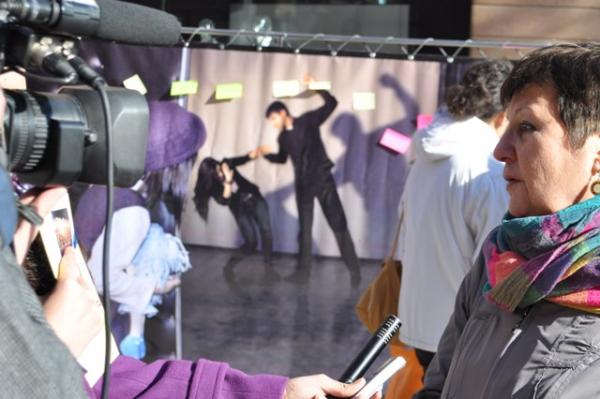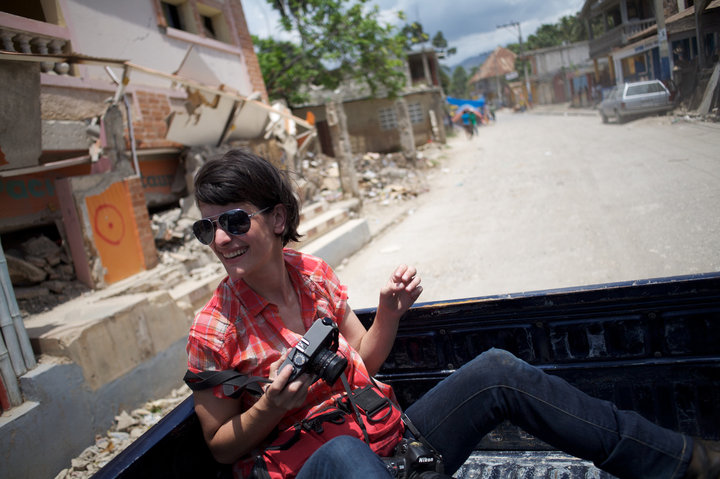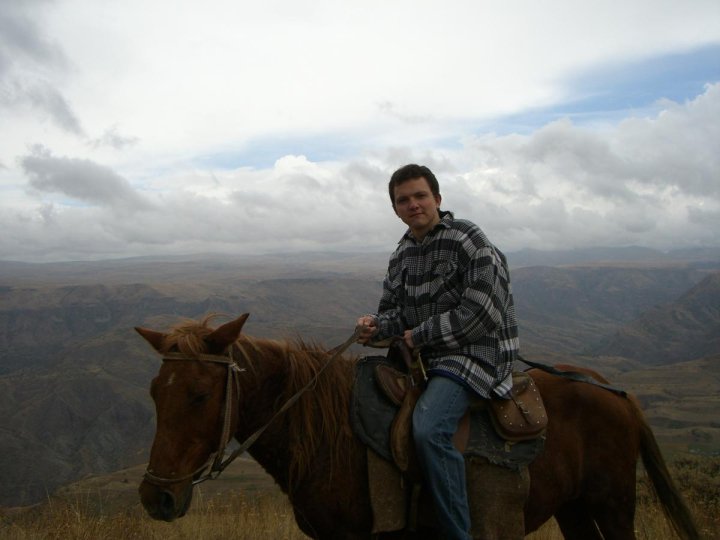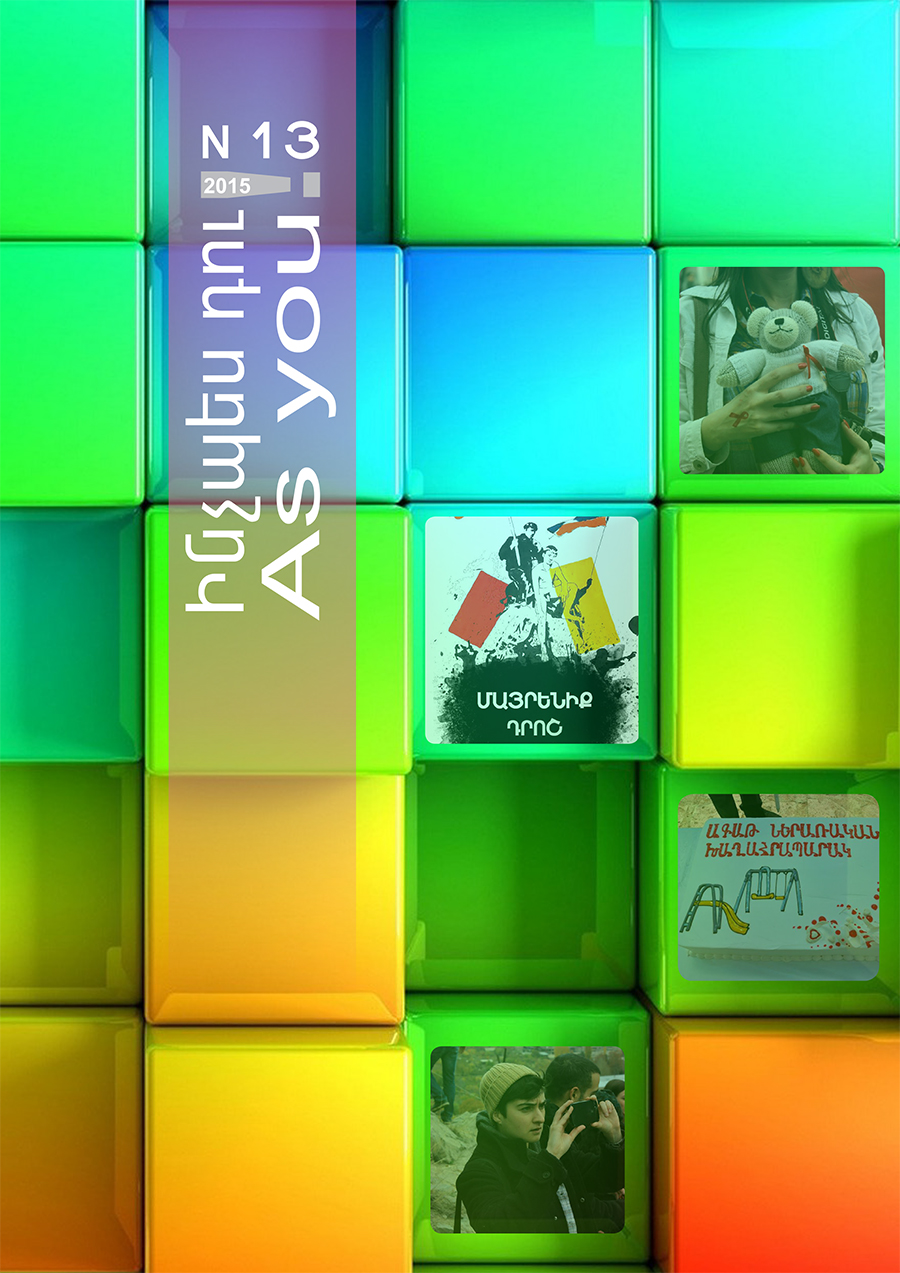Our interviewee is the chairman of the “Peace Dialogue” NGO Edgar Khachatryan
Q: Mr. Khachatryan, during the “Armenian Forum for Democracy” held a few days ago, the EU representative in Armenia touched upon the issue of protection of the interests and rights of LGBTI + people, emphasizing that all people in a democratic society should have equal rights.
A: Yes, in fact, this is the first time such a text is pronounced from such a platform, it’s very important to me. It was a message to the state that the protection of the interests and rights of LGBTI + people should always be on the agenda in a democratic society. If we are talking about democracy, then it is nonsense when the interests of one group can be defended and the other group not.
Q: The equal rights of vulnerable groups, including LGBTI + people, have been talked about for years. What steps have been taken in recent years to progress towards such an equality? Does the content of the discourse change?
A: I will try to be as objective as possible in that issue. Systemic change is needed to change that discourse. It implies the well-functioning of democratic institutions, the awareness raising of state structures, the increase of professionalism, education reforms, legislative reforms, changes in values, because democracy as a system is possible only in a society with democratic values. In other words, the society must be prepared to live by those values. Unfortunately, I have not seen any institutional changes in this direction yet.
Q: Prime Minister Nikol Pashinyan expressed the position that some government should one day face the problems of the LGBTI + community and make clear decisions on their problems. Why wasn’t it this government the clear decision-maker?
A: To be objective, we must mention that this government has not fulfilled its promises not only in this area, but also in other areas. I see that no sector reform has been completed or even started, so I will be difficult for me to say whether the failure to make clear decisions is due to not addressing the community’s problems or the inability to implement reforms in any area at all.
Q: If we compare the positions of the previous and current authorities on the problems of the LGBTI + community, what conclusions can we draw?
A: My approach to this issue is as follows: these authorities, though declaratively, regularly speak about the democratization of Armenia. The messages of the previous authorities on democracy, in general, were not so direct, it was in their speeches, they were simply highlighting about democracy. And this government has declared democracy as its priority, that is, democratization has been declared as a state course, so this implies that all the problems of the community should be part of this agenda. These new authorities should but not face these problems, but in which way these actions are carried out on a practical level is another matter.
Q: Mr. Khachatryan, do you have an impression that the community is relatively silent? The impression is that their problems are generally pushed into the background, that there is no space to speak publicly about those problems.
A: Yes, you are right: I will find it difficult to explain why the community is more silent. I remember that during the previous government, there was frequent violence against members of this community by different segments of society. Now it seems that such cases are not voiced, or not enough is said.
Q: Whereas 4 years ago the discussion within the community reached as far as the issue of the need to raise the right of LGBTI + people to marry ․․․ It turns out that we have a setback?
A: Isn’t the setback obvious? After the war, I think that setback is obvious.
Q: One of the representatives of the community told us that under the heavy burden of the problems of the Armenian society, it has become more difficult to talk about the problems of vulnerable groups.
A: This is a really serious, systemic problem… The traumas of the society after the war, the loss of confidence in democratic values …But in any case, I think the problems should be raised. It cannot be said that the problems of the community are less important against this background, because they are problems of the daily rights and freedoms of concrete people. If the voice of the community is not heard enough, it does not mean that there is no gender based violence for example. It is not that the problems are solved and so that’s the reason for the silence.
Q: Or maybe the priorities of journalists and non-governmental organizations have changed, that they do not actively address the problems of the community as previously?
A: Even if it is so, it is still a problem. I understand that the war has had a very serious impact on what civil society needs to do, its strategies and tactics, but even if the issues you point out are not in our focus, it is already a serious issue. NGOs, of course, have rather limited resources and are not able to work on all issues. Yes, after the war, new problems have emerged, to the solution of which the organizations have directed their resources, and, of course, it is possible that they miss those problems, but the role of the LGBTI + community is also important here․ that the issues remain on the agenda, that these issues do not get lost among the most important issues, so as they do not become less noticeable.
Q: If you were one of the decision-makers, what steps would you take to address the problems of the LGBTI + community in the context of our entire discussion?
A: It is a very difficult question. In this situation, when the issues of democracy and human rights are very acute in some sections of the society, it is very difficult to talk about the ideas that are not accepted by the conservative society. Anything that does not fit into pro-Russian, pro-conservative rhetoric is severely criticized, attacked, and in many cases the authorities fail to defend themselves when talking about those values.
Source: Informed Society Magazine



